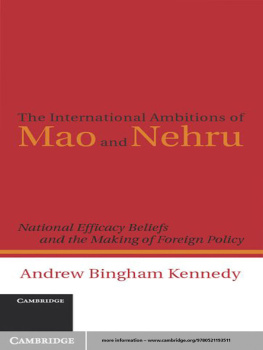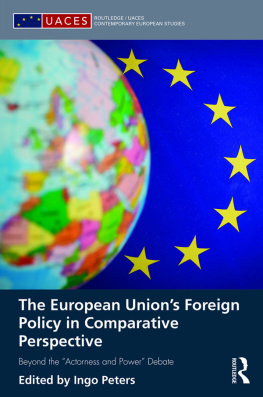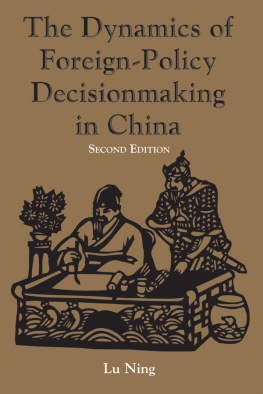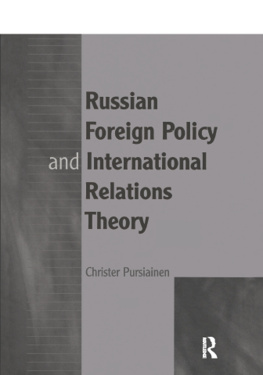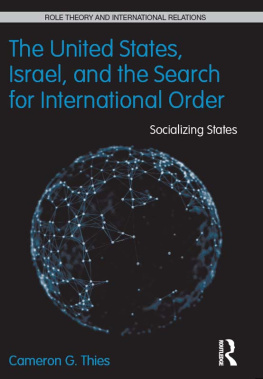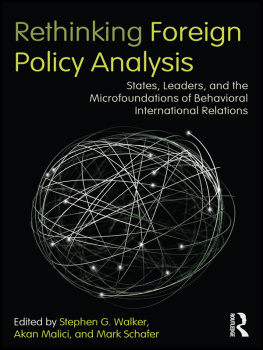The International Ambitions of Mao and Nehru
National Efficacy Beliefs and the Making of Foreign Policy
Why do leaders sometimes challengex, rather than accept, the international structures that surround their states? In The International Ambitions of Mao and Nehru , Andrew Bingham Kennedy answers this question through in-depth studies of Chinese foreign policy under Mao Zedong and Indian foreign policy under Jawaharlal Nehru. Drawing on international relations theory and psychological research, Kennedy offers a new theoretical explanation for bold leadership in foreign policy, one that stresses the beliefs that leaders develop about the national efficacy of their states. He shows how this approach illuminates several of Mao's and Nehru's most important military and diplomatic decisions by drawing on archival evidence and primary source materials from China, India, the United States, and the United Kingdom. A rare blend of theoretical innovation and historical scholarship, The International Ambitions of Mao and Nehru is a fascinating portrait of how foreign policy decisions are made.
An insightful, well-argued, and solidly documented reinterpretation of the psychology and foreign policy choices of Mao Zedong and Jawaharlal Nehru. Kennedy convincingly links the historical experience of India's independence movement and China's revolutionary upheaval to differing belief systems of Mao and Nehru, and then links those beliefs to the foreign policy choices of the two leaders. He argues convincingly that India's long and successful nonviolent struggle for independence, and the victory of the Chinese revolution against seemingly overwhelming odds, gave rise to different beliefs about the efficacy of moral suasion and war, and that Nehru's and Mao's embrace of these varying worldviews deeply influenced those leaders management of their nation's foreign relations. An important contribution to the study of the psychology of political leadership and comparative foreign policy.
John Garver, Sam Nunn School of International Affairs, Georgia Institute of Technology
Andrew Bingham Kennedy teaches international politics at the Crawford School of Economics and Government at the Australian National University. He received his Ph.D. in 2007 from Harvard University, where his dissertation received the Edward M. Chase Award for the best dissertation on a subject related to world peace. He holds a master's degree from the Fletcher School of Law and Diplomacy at Tufts University and a B.S. summa cum laude in Psychology from Duke University. He has also held postdoctoral appointments at Princeton University and Harvard University. His work has appeared in International Security, Survival: Global Politics and Strategy , the China Quarterly , Asian Survey , the Washington Post , and the Christian Science Monitor .
Cambridge University Press
Cambridge, New York, Melbourne, Madrid, Cape Town, Singapore, So Paulo, Delhi, Tokyo, Mexico City
Cambridge University Press
32 Avenue of the Americas, New York , NY 10013-2473, USA
www.cambridge.org
Information on this title: www.cambridge.org/9780521193511
Andrew Bingham Kennedy 2012
This publication is in copyright. Subject to statutory exception and to the provisions of relevant collective licensing agreements, no reproduction of any part may take place without the written permission of Cambridge University Press.
First published 2012
Printed in the United States of America
A catalog record for this publication is available from the British Library.
Library of Congress Cataloging in Publication data
Kennedy, Andrew Bingham, 1968
The international ambitions of Mao and Nehru : national efficacy beliefs and the making of foreign policy / Andrew Bingham Kennedy.
p. cm.
Includes bibliographical references and index.
ISBN 978-0-521-19351-1 (hardback)
1. China Foreign relations 19491976. 2. Mao, Zedong, 1893--1976 Philosophy. 3. India Foreign relations 19471984. 4. Nehru, Jawaharlal, 18891964 Philosophy. 5. International relations Philosophy. 6. World politics 19451989. I. Title.
DS777.8.K454 2011
327.51009045dc22 2011014321
ISBN 978-0-521-19351-1 Hardback
Cambridge University Press has no responsibility for the persistence or accuracy of URLs for external or third-party Internet Web sites referred to in this publication and does not guarantee that any content on such Web sites is, or will remain, accurate or appropriate.
Acknowledgments
I am tremendously grateful for all of the assistance I have received in writing this book. The manuscript began as a dissertation in the Department of Government at Harvard University, where my work was supervised by a wonderfully diverse and helpful committee. Iain Johnston, the chair of my committee, inspired me to pursue a Ph.D. in the first place and has been an outstanding mentor ever since. His intellectual talents are matched only by his generosity in sharing them. Devesh Kapur tutored me in Indian politics, and also in the art of doing research in India, and I have always valued his support and advice. Roderick MacFarquhar possesses an unsurpassed understanding of elite politics in Maoist China and Nehruvian India, and I am deeply grateful for the many insights that he has shared with me. Steve Rosen was terrifically helpful in more ways than I could possibly list, instructing me in the nuances of leadership psychology, sharing his vast knowledge of military history, and always asking tough questions.
Many other colleagues have helped me write and revise portions of the manuscript over the years. Alex Liebman and Manjari Chatterjee Miller were wonderfully collegial critics and sounding boards throughout many different stages of the project. Michael Horowitz, Leif Easley, Yongwook Ryu, Erin Simpson, Nathan Paxton, David Margolis, and the 20062007 Olin Fellows provided very useful feedback while I was in graduate school, and colleagues in the Security Studies, Political Psychology, and China and the World workshops at Harvard were ruthlessly helpful as well. Srinath Raghavan offered excellent comments on the India chapters, and Taylor Fravel and Tom Christensen provided terrific feedback on multiple chapters as well. I am also grateful for the thoughtful comments and criticism I have received from Ian Chong, Michael Glosny, Todd Hall, Margaret Hermann, Sunil Khilnani, Rose McDermott, Richard Rosecrance, Robert Ross, Richard Samuels, Elizabeth Saunders, and two anonymous reviewers for Cambridge University Press.
Many other scholars helped me in a variety of other ways. Lorenz Lthi, Wang Dong, and Wang Zheng offered valuable assistance with my research in China. Stephen Cohen introduced me to many people in India I would not have met otherwise, and Stuart Schram offered invaluable insight into Mao's military and political thought. Albert Bandura was very encouraging and took the time to explain his ideas to a graduate student working in a different discipline. I have also learned much from conversations with Amitav Acharya, Francine Frankel, Rajmohan Gandhi, John Ikenberry, Donald Klein, Ashley Tellis, Lynn White, Tom Wright, and Xue Litai.

